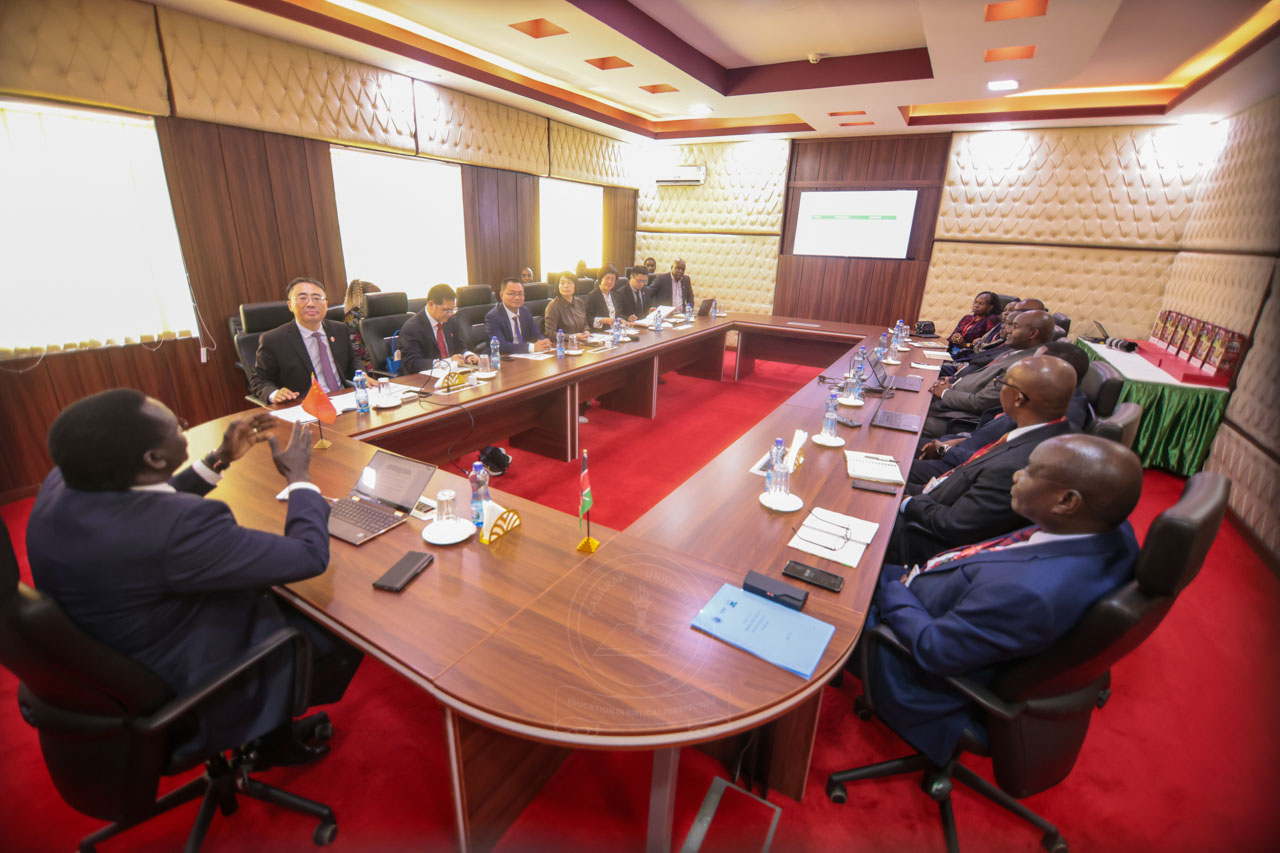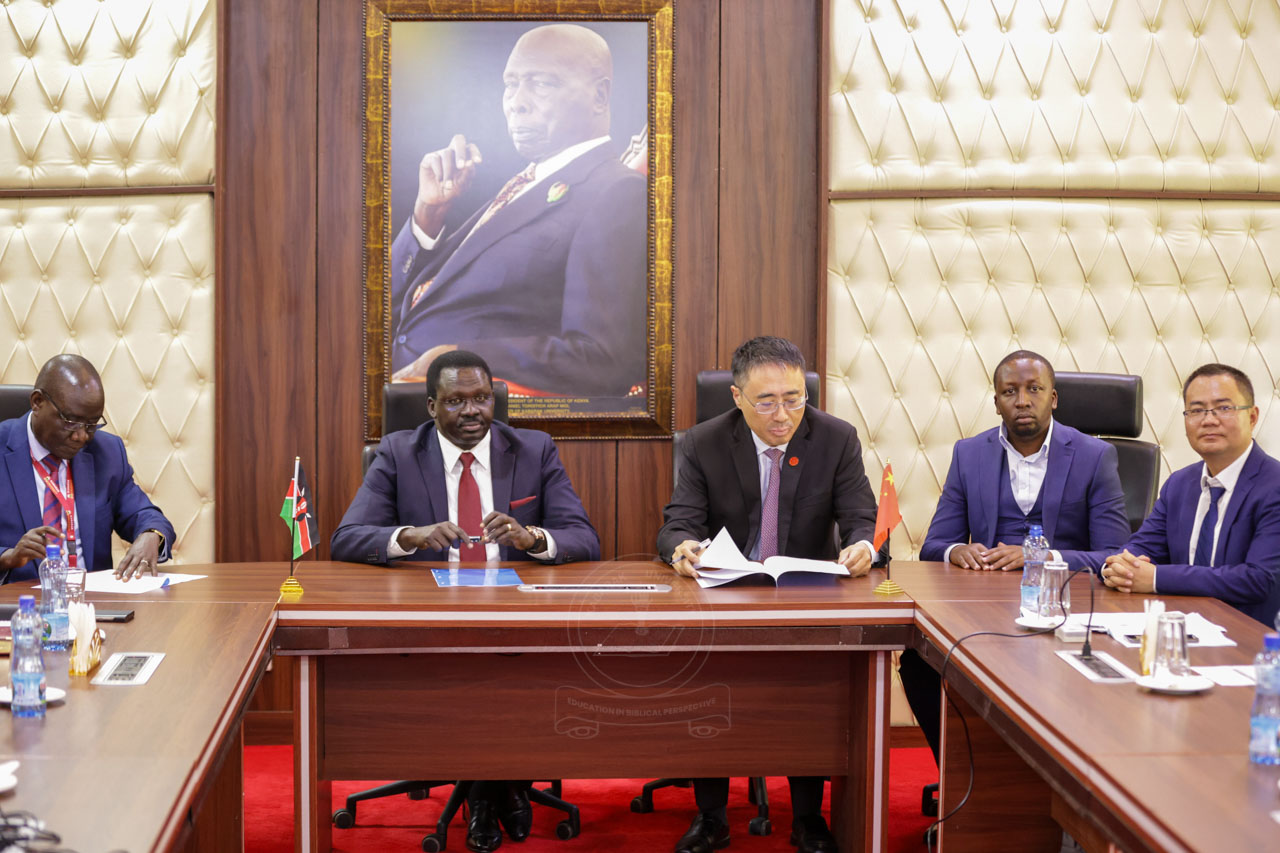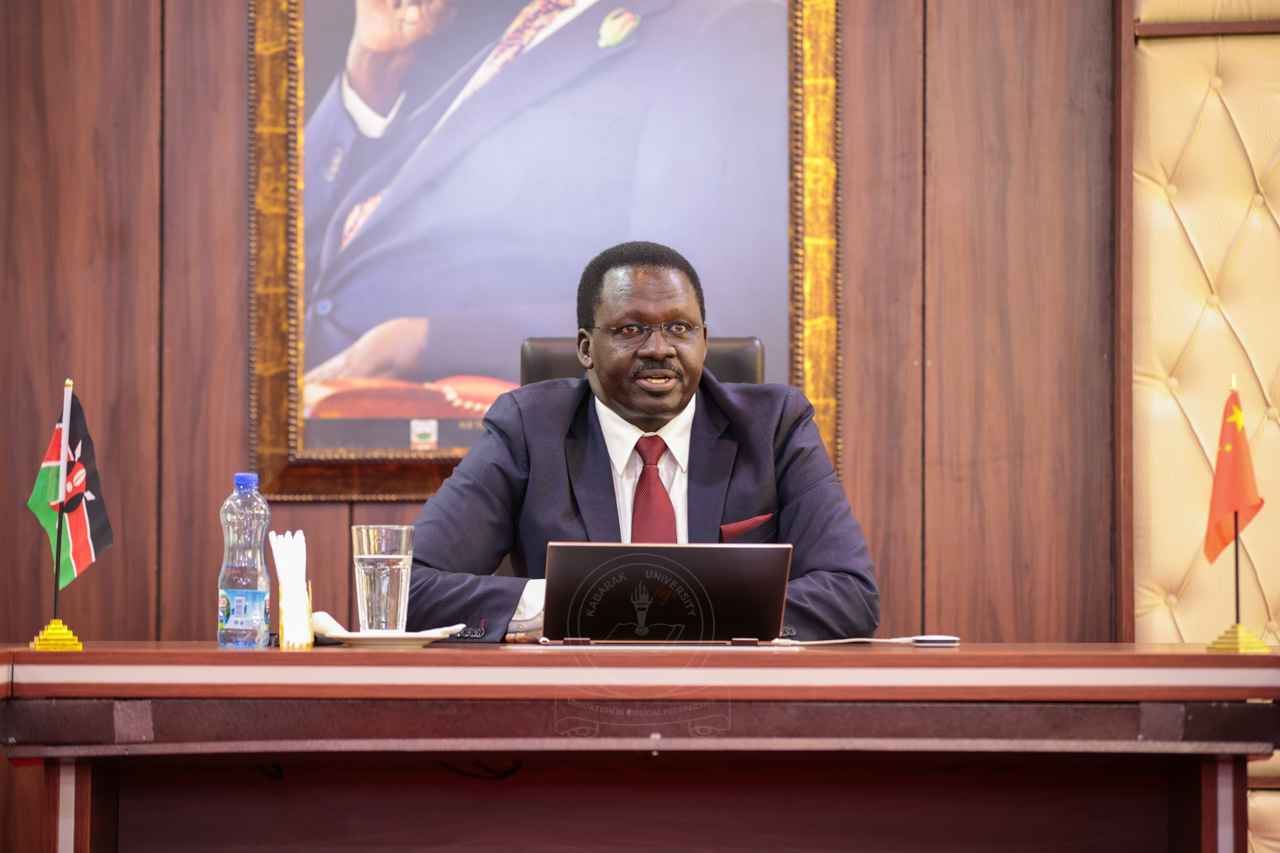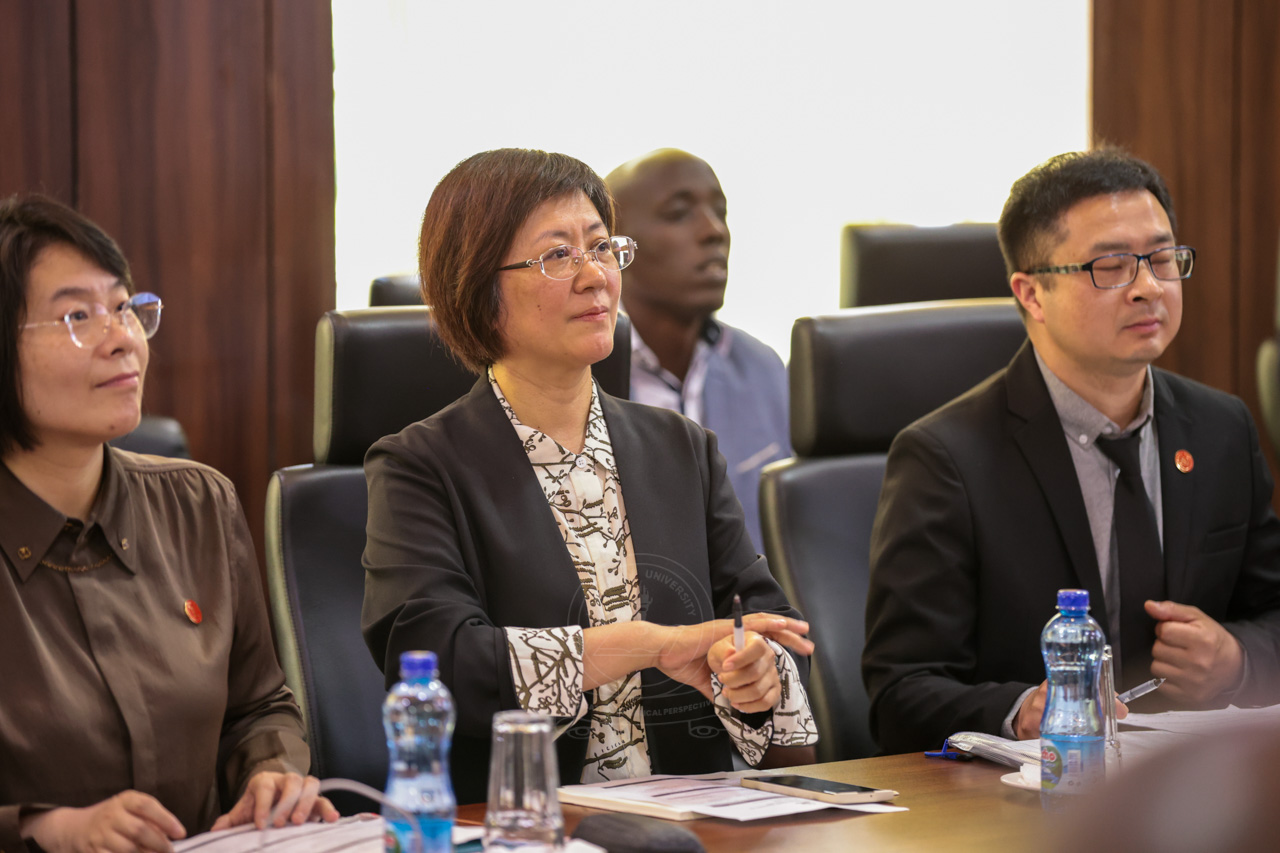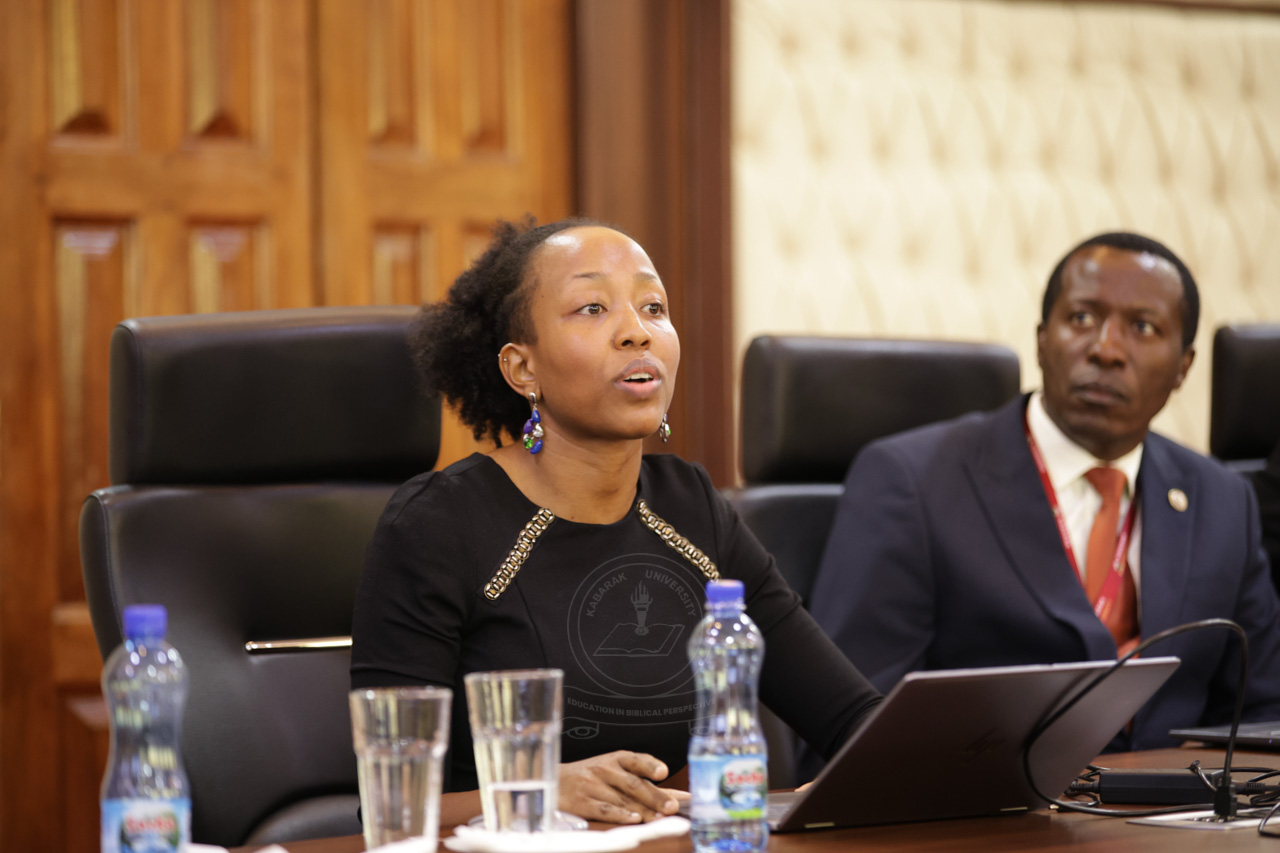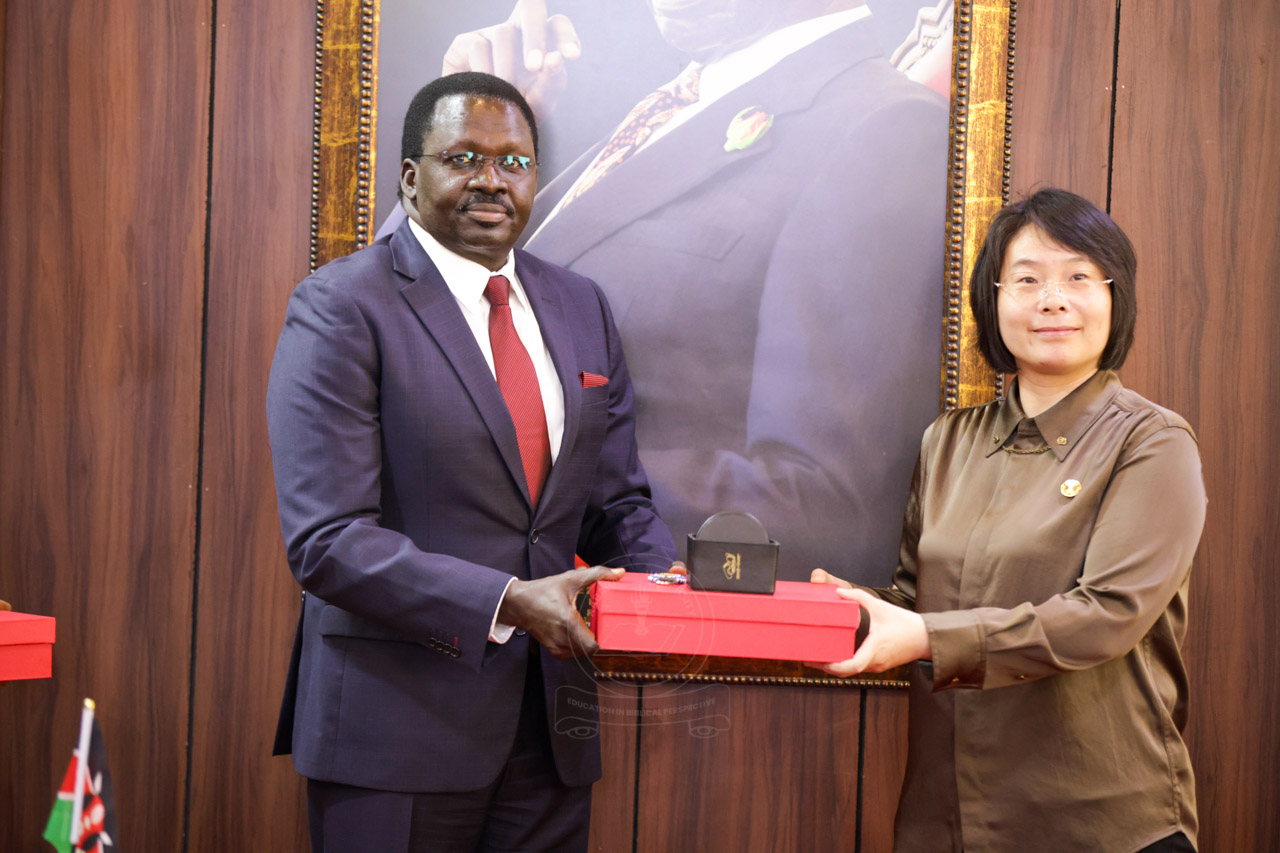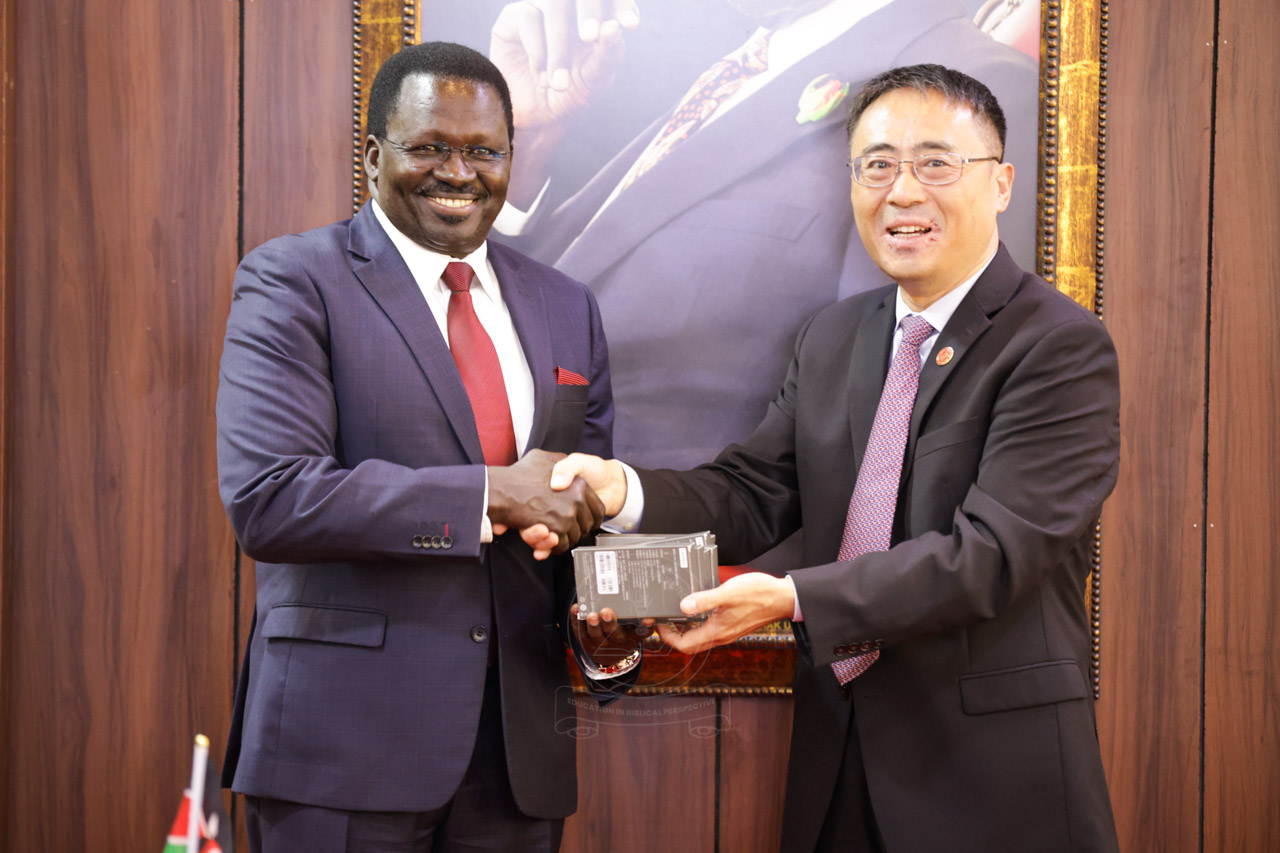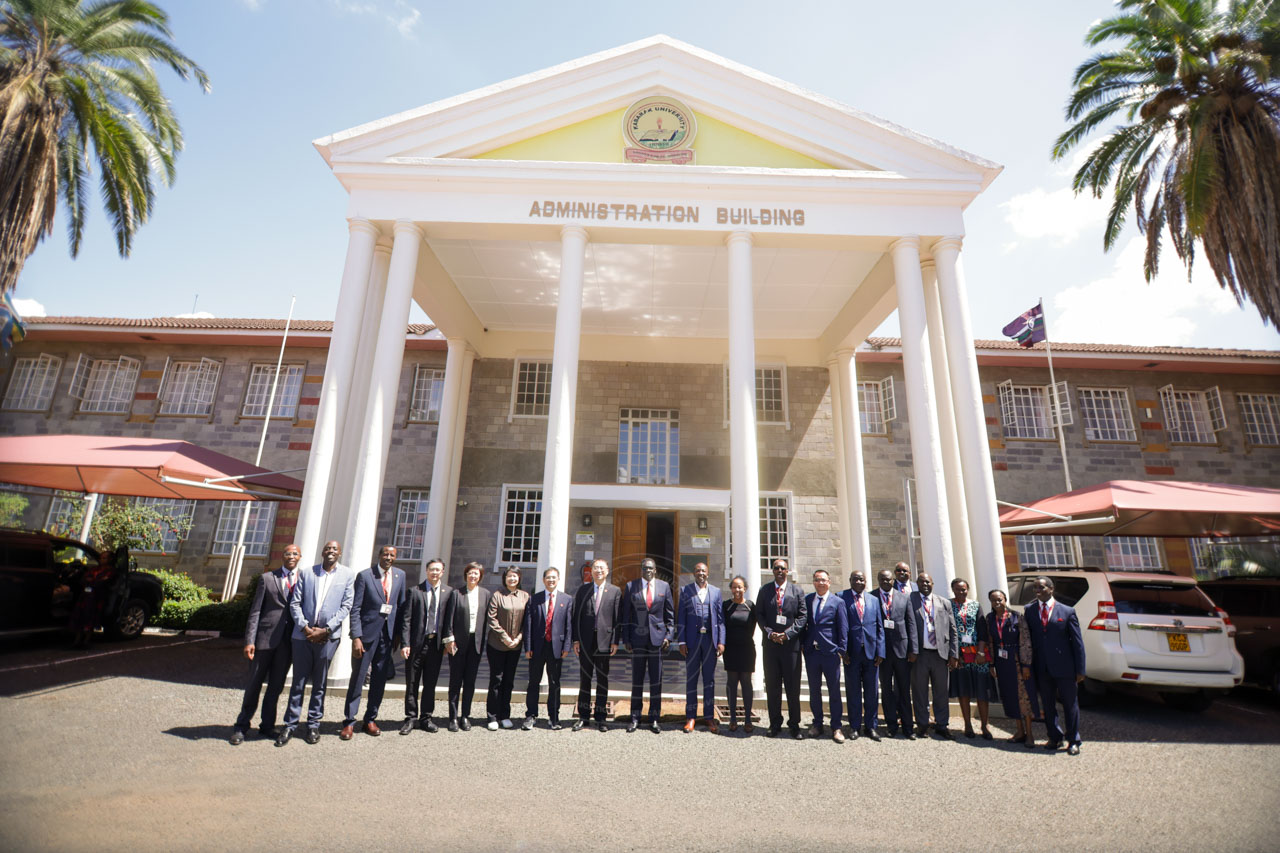Kabarak University marked a significant milestone in its international collaboration agenda by hosting a high-level delegation from the Shanghai University of Electric Power (SUEP), China. The meeting, held at the University’s Main Boardroom, brought together senior officials from both institutions to explore areas of mutual academic, research, and cultural interest.
Led by Vice-Chancellor Prof. Henry K. Kiplangat, the Kabarak University management team warmly welcomed the Chinese delegation headed by Prof. Fu Yang, Vice President of SUEP. The delegation also included senior directors and deans from SUEP, alongside representatives from Cytek Solar and GoodWe Technologies Co. Ltd.
In his welcoming remarks, Prof. Kiplangat emphasized the significance of the visit, describing it as a reflection of the strong and growing partnership between Kenya and China—and more specifically, between the two universities. He outlined several key areas of collaboration, including:
- Joint Academic Programs in renewable energy, software engineering, information technology, environmental science, and electrical engineering.
- Dual Degree Programs at the master’s level, potentially following a 1+2 model, where students study for one year at Kabarak and two years in China.
- Virtual Campus Development, notably the proposed “Now Africa Campus,” aimed at preparing African students for academic and cultural immersion in China.
- Faculty Exchange Programs to enhance global expertise and foster research synergies.
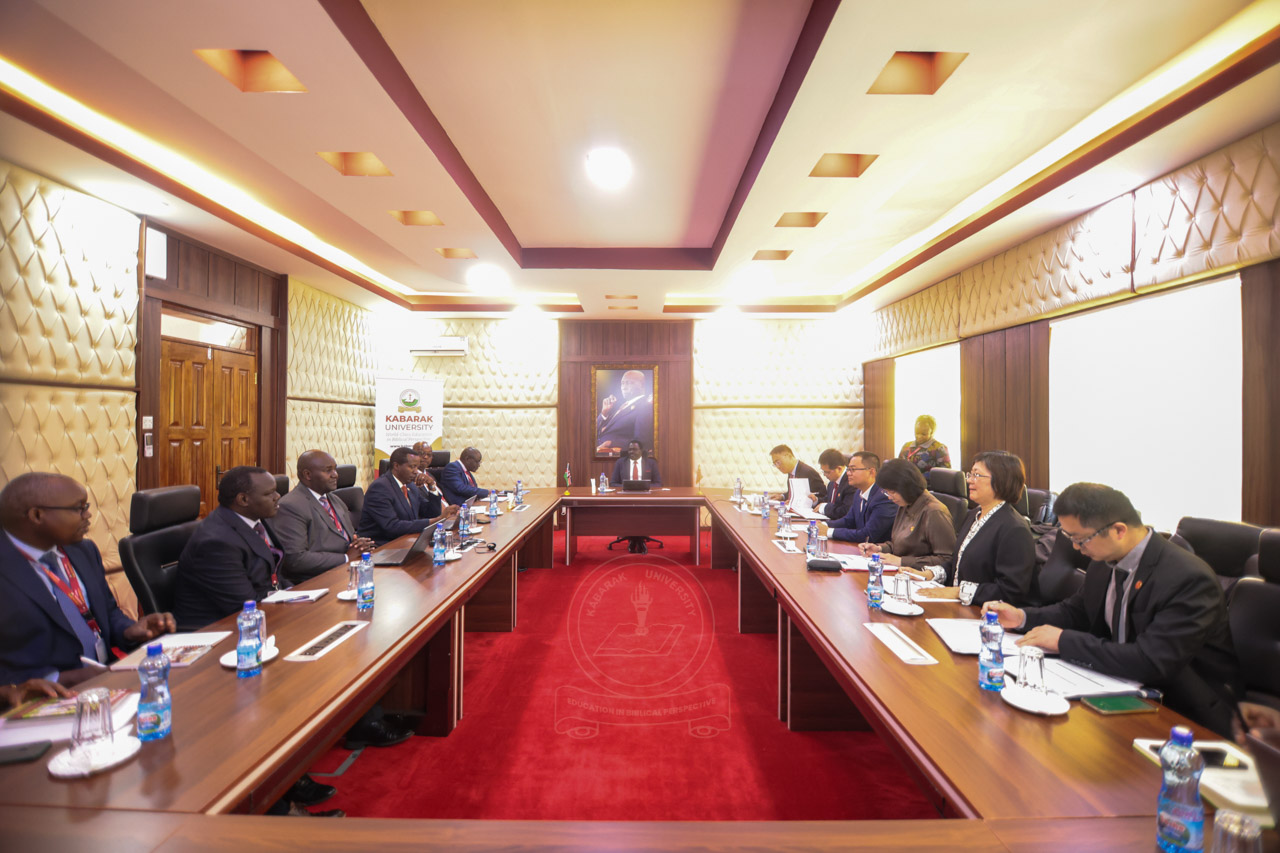
Prof. Fu Yang, representing SUEP, praised Kabarak University’s rapid growth and academic excellence since its founding in 2000. He reiterated SUEP’s commitment to partnering with Kabarak in three key domains:
- Interdisciplinary Innovation – including the proposed establishment of a “Sino-African Green Energy Economics Research Center.”
- Scientific Research Collaboration – with a focus on mathematics, physics, and computational modeling in energy-related technologies.
- Cultural and Academic Exchange – promoting shared learning through faculty and student mobility, as well as joint research initiatives under China’s Belt and Road Initiative.
The visit concluded with mutual expressions of goodwill and a shared vision to transform educational collaboration into a driving force for sustainable development across Africa and Asia.
As both institutions look toward the future, this partnership is expected to catalyze innovation, foster academic excellence, and contribute meaningfully to global energy and education goals.
“Education is the torch that illuminates the future,” Prof. Fu remarked—a sentiment echoed by both delegations, united in their commitment to lighting that torch across continents.



